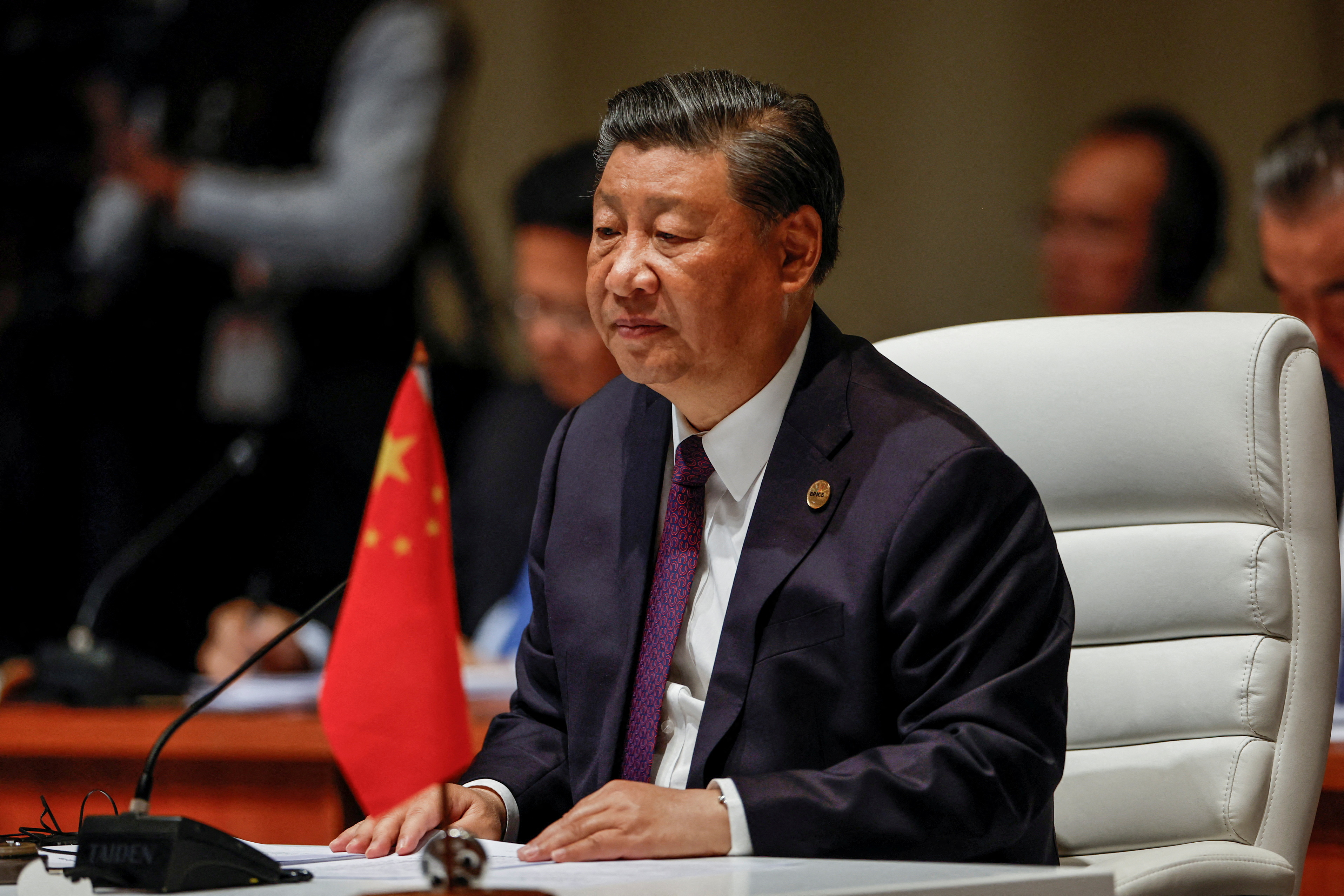
China’s workers have long been known for putting in long days at the office, but they now face a new set of responsibilities: studying the writings of President Xi Jinping.
Since Beijing launched a new propaganda drive earlier this year, Xi Jinping Thought is reportedly becoming a common topic of discussion among employees at state-owned companies and private businesses, including foreign firms.
What is ‘Xi Jinping Thought’?
Xi Jinping Thought on Socialism with Chinese Characteristics for a New Era, or Xi Jinping Thought for short, is a collection of the Chinese leader’s writings and speeches about the course of China’s development.
The writings’ stated goal is “the great rejuvenation of the Chinese nation”.
In April, the Chinese Communist Party (CCP) launched a new campaign to study and implement Xi Jinping Thought.
Since then, the campaign has spread within the business world.
Media outlets, including Bloomberg and Nikkei Asia, have reported anonymous accounts from bankers and other employees describing lengthy meetings and discussions about Xi’s works.
Some of the workplaces reportedly affected include global companies with headquarters located overseas.
Under Xi, the world’s second-largest economy has taken a turn towards greater ideological purity based on the party’s Marxist-Leninist roots and his own cult of personality.
Among other moves to strengthen indoctrination, Xi has enshrined his writings into the constitution of the CCP and the national school curriculum.
What does Marxist-Leninist theory have to do with business and banking?
While communist ideology may not immediately seem relevant to banking or international finance and trade, China’s banks and state-owned enterprises are closely entwined with Beijing and subject to heavy oversight and influence.
Similarly, it is not unusual for Chinese citizens to be members of the CCP, which is officially separate from the government – although that distinction has faded under Xi.
Last year, the CCP’s total membership officially stood at 96.71 million people – about 7 percent of the country’s population.
Studying Xi’s writings is an ongoing practice across CCP cells, according to Carsten Holz, an associate Professor of Social Science at the Hong Kong University of Science and Technology.

Top bankers and other high-level employees are likely party members, Holz said, meaning they would have probably been studying Xi Jinping Thought even before the April directive.
“Banks are mostly state-owned financial institutions and the biggest ones used to literally be part of the government. They’re aware that they’re more akin to government bureaucrats than traditional bankers,” a Hong Kong-based analyst in the private sector told Al Jazeera on condition of anonymity.
“They’ve almost certainly had ideological training prior to this. So [now], it’s maybe more than before and centred more around one person, but it’s definitely not their first time at the rodeo, so to speak,” the analyst said.
What goes on at these study sessions?
While Xi Jinping Thought study sessions have no real analogue in the Western world, they function somewhat similarly to an activity like Bible studies, said Andy Mok, a senior research fellow at the Center for China and Globalization in Beijing.
Mok described Xi Jinping Thought as a cross between a “moral framework” and a “state religion”, minus superstitious elements, so study sessions participants would discuss how to apply the writings to their life and business practices.
In the case of banking, he said, the practice is not unlike how many Islamic countries have pioneered Islamic finance.
“Why would Chinese banks be studying Xi Jinping Thought? I think one reason is that Xi Jinping Thought is, of course, a political ideology, but it may even be deeper and broader than that,” Mok told Al Jazeera. “It is actually a philosophy of life.”
But Holz said the rise of Xi Jinping Thought could be seen as a symptom of the Chinese leader’s drive to consolidate power and control to a degree not seen since Mao Zedong.
“I interpret these study sessions as rituals. These rituals primarily serve the purpose of ensuring continued loyalty to the regime leader,” Holz said.
“They also help protect against independent thinking in that brain capacity is preoccupied with the leader’s dogma, and any interest in intellectual debate is stifled by the need to appear to fall in line with the leader’s dogma.”
How do bankers and executives feel about these study sessions?
Most evidence about how employees feel about studying Xi’s ideology is anecdotal – but there are some indications that the trend has not always been welcome.
In a recent report by Nikkei Asia, one unnamed employee described his dismay over spending 90 minutes of a two-hour business meeting discussing Xi’s writings.
Others quoted in the report complained about such activities taking up valuable employee time and resources, with some top managers reportedly recruited to attend weeks-long study sessions.
While the study sessions may be time-consuming, more concerning for bankers and executives is Xi’s parallel campaign for “common prosperity”, the Hong Kong-based analyst said.
The tenet of Xi Jinping Thought, which calls for greater economic and social equality, can in practice mean steep cuts to the salaries of high-performing employees, sapping morale, he said.
Holz said he was concerned that Xi Jinping Thought could distract China’s banks and state-owned enterprises from the most important task at hand – namely, getting the economy back on track as its post-pandemic recovery stumbles amid challenges including deflation, a real estate crisis and a low birth rate.
“The preoccupation with the leader’s dogma directly and negatively affects the open exchange of ideas and the free-spirited innovation that drives economic growth,” he said.







